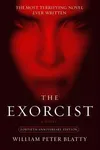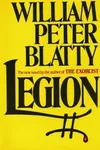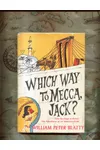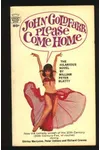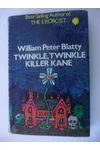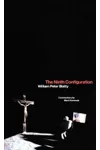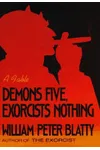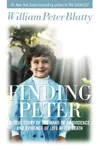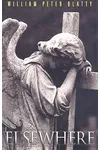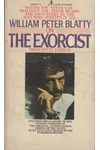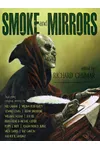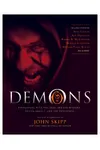Picture a Lebanese-American storyteller who turned nightmares into cinematic gold—meet William Peter Blatty! Born in 1928 in New York City, Blatty rose from humble beginnings to craft The Exorcist, a horror masterpiece that chilled spines and sparked debates about faith and fear. His unique blend of terror, humor, and spirituality made him a literary icon.
Blatty’s life was as compelling as his stories. From poverty to Oscar-winning glory, his journey reflects the power of grit and imagination. Let’s dive into the world of this remarkable author whose pen redefined horror.
The Making of William Peter Blatty
William Peter Blatty was born on January 7, 1928, to Lebanese immigrant parents in New York City. Raised in poverty, he navigated a tough childhood, moving frequently and relying on his mother’s resourcefulness. A scholarship to Georgetown University ignited his love for storytelling, where he studied English and absorbed the Jesuit teachings that later shaped his work. After graduating, Blatty dabbled in odd jobs—Air Force officer, publicist, even a comic novelist—before his big break in Hollywood, co-writing screenplays with director Blake Edwards.
William Peter Blatty’s Unforgettable Stories
Blatty’s 1971 novel The Exorcist is his crown jewel. Inspired by a 1949 exorcism case he read about at Georgetown, the book weaves a gripping tale of demonic possession, faith, and redemption. Its raw intensity and philosophical depth made it a bestseller, and Blatty’s screenplay adaptation won him an Oscar in 1973. The film’s cultural impact was seismic, sparking both fascination and controversy.
Blatty’s style was a masterclass in balance—horror grounded in human emotion, humor laced with dread. His 1983 novel Legion, a sequel to The Exorcist, explored existential questions through detective Lt. Kinderman, blending mystery with metaphysics. Other works, like The Ninth Configuration (1978), showcased his knack for dark comedy and psychological depth, earning a cult following. Blatty’s stories weren’t just scary—they probed the soul.
His lesser-known works, like Which Way to Mecca, Jack? (1960), a humorous memoir of his Lebanese heritage, revealed his versatility. Whether writing novels or screenplays, Blatty’s voice was unmistakable: witty, profound, and unafraid to confront life’s big questions.
Why William Peter Blatty Matters
Blatty didn’t just scare readers—he challenged them to wrestle with faith, evil, and the human condition. The Exorcist redefined horror, elevating it from B-movie schlock to a genre worthy of intellectual debate. His work influenced filmmakers like William Friedkin and authors like Stephen King, cementing his legacy as a pioneer. Beyond horror, Blatty’s exploration of spirituality resonated with readers seeking meaning in a chaotic world.
His rags-to-riches story also inspires. From a kid on welfare to a Hollywood heavyweight, Blatty proved storytelling could transcend circumstance. His Lebanese heritage added a unique lens, enriching American literature with diverse perspectives.
- Birth Date: January 7, 1928
- Key Works: The Exorcist (1971), Legion (1983), The Ninth Configuration (1978)
- Awards: Academy Award for Best Adapted Screenplay (1973), Golden Globe
- Fun Fact: Blatty once won $10,000 on a game show hosted by Groucho Marx!
Snag The Exorcist or Legion and dive into William Peter Blatty’s thrilling, thought-provoking world!
